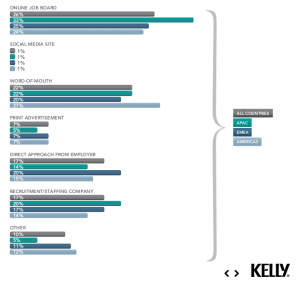The average salary in the Middle East’s real estate sector has fallen only 1% in the last year, from Dhs 38,351 to Dhs 37,965. The results were obtained as part of the Middle East Salary Survey conducted by the Royal Institute of Chartered Surveyors (RICS) and Cityscape Connect. It was commissioned by property recruitment consultancy Macdonald and Company.
The survey consisted of 1,400 real estate professionals across the Middle East (though the survey population was skewed with higher numbers of respondents from the UAE, Qatar and Saudi Arabia).
It found 30% of respondents saw in increase in base salary over the last year, while only 5% have received pay cuts–significant improvements over 25% and 11% last year. The survey also found that the average bonus had increased 4.4% on the year, to Dhs76,431. 40% of respondents indicated they had received a bonus over the last six months.
Redundancy rates have also improved, falling from 24% to 21%. Additionally, 78% of those made redundant over the last year said they have already found new employment.

TEKpeople is a small, specialist recruiting agency focused on IT professionals both within Ireland and abroad.
Dublin-based software firm TEKenable announced the launch of a specialist recruiting agency, TEKpeople, to mitigate what it sees as a shortage of qualified IT professionals in the Irish market.
Kira Gusakova, a principal consultant for TEKpeople, said:
TEKpeople was set up to address a need in the market we have identified many times: the lack of a specialised recruitment agency for skilled professionals like developers, project managers, software engineers and technical architects; whose recruiters really understand the technology well enough to add value to the recruitment process.

Singapore is one of the most popular expat destinations in the world
Singapore aims to restrict the flow of expat workers by tightening eligibility requirements for foreigners entering “lower and mid-level professional, managerial and executive jobs.” The new rules center on salary and education requirements.
According to a statement from Singapore’s Ministry of Manpower:
The Government is committed to managing the size of the foreign workforce, as part of our broader strategies to achieve productivity-driven economic growth, as well as to ensure that Singaporeans remain at the core of a diverse and globally competitive workforce. Our aim is to avoid increasing dependence on foreign workers over the long term, by keeping the foreign share of the workforce at about one-third.

KPMG will hire 75,000 recent graduates over the next 3 years
KPMG’s member firms will hire approximately 75,000 campus graduates worldwide over the next three years, a 25% increase in the firm’s historical on-campus resourcing target. In doing so it will place special emphasis on the Asia Pacific region.
The global member firm network has identified a need to bring approximately 250,000 new hires on board. They will be integrated into all of KPMG’s functional areas: Audit, Tax, Advisory, and Internal Firm Services.

A majority of employers are reducing expat relocation bonuses
Employers are still under pressure to cut expenses for expat assignments, according to Brookfield Global Relocation Services‘ 2011 Global Relocation Trends Survey. 75% of companies reduced expat assignment expenses (perks such as relocation bonuses and hardship allowances), with 56% of respondents reporting increased pressure to cut costs compared to last year.
As Linda Wang observed in a recent article for Chemical & Engineering News:
Not that long ago, chemists on expatriate assignments to China could expect to stay for three to five years, helping their company establish a plant or a research facility there and training the local talent to assume leadership roles. These expats often received generous compensation packages including salary increases, housing subsidies, and private education for their children.
The Great Recession, which lasted from December 2007 until June 2009, forced companies to scale back on these assignments and rethink their expat staffing strategies. Now, as the economy struggles out of its slump, companies are resuming their global expansion plans, and international assignments to China and other parts of Asia are cropping up once again. But they are coming back with far fewer perks.
 Multinationals are preparing Indian staff for larger global roles, wrote Writankar Mukherjee in The Economic Times, with many companies starting “mentoring” programs to help train promising candidates for leadership positions. This could well be the start of a tectonic shift from India’s popular image as a low-cost outsourcing destination.
Multinationals are preparing Indian staff for larger global roles, wrote Writankar Mukherjee in The Economic Times, with many companies starting “mentoring” programs to help train promising candidates for leadership positions. This could well be the start of a tectonic shift from India’s popular image as a low-cost outsourcing destination.
Both Panasonic and Nokia have invested significant funds and effort in training and mentoring programs. Mukherjee quoted Nokia India’s Head of HR, Anu Pires as saying
The emphasis on creating global managers from India in multinational companies has seen an upward trend, which is triggering this move. There has been an increase in the overall exchange of talent, with top managers from markets overseas being moved into India and other Asian countries, and vice-versa […] Indian talent will play a much more significant global role for Nokia, just as the company has always believed in the India story and invested ahead of the curve in building its presence and shaping the market here.
Aspire Global Network responded to clients’ demands by opening a Singapore office. The new operation will serve the rapidly growing Asian media and advertising market. Aspire’s Chairman, Paul Farrer, said the firm focuses on the creative, media, market research and digital sectors:
Opening any new office is a challenge and Asia presents many opportunities and complexities in delivering quality staffing solutions. This gives us a physical presence on our third continent which is all part of our vision to be a global network of leading specialist recruitment companies.
Emma Osborne will head Aspire’s Singapore office as Managing Director. She has spent the past six and a half years working at pfj in London. “It was essential to us that we had someone we knew well leading our brand (in Asia),” said Farrer. He added that given the success the group has seen in the UK and Australia the Asian operation should prove quite profitable.
ExpatRecruiter.com is for professionals working in the recruitment industry: international recruiters, headhunters, HR staff and companies looking for candidates from abroad. Here you’ll find all the latest on
- international employment trends
- expat trends
- career advice

